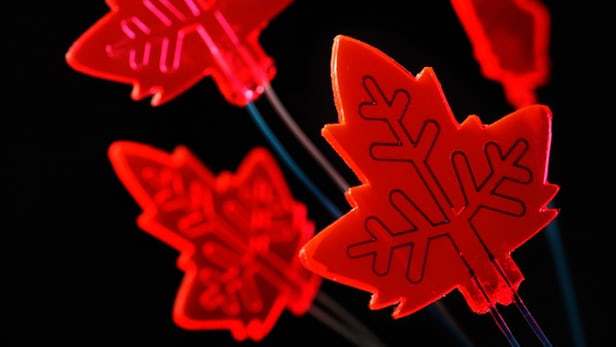
Breaking News
 Canada's Organ Harvesting just got EXPOSED, and it's Satanic | Redacted News
Canada's Organ Harvesting just got EXPOSED, and it's Satanic | Redacted News
 "GRAVE CONCERNS" CRITICAL TO SUPPLYING THE NATIONS FOOD SUPPLY
"GRAVE CONCERNS" CRITICAL TO SUPPLYING THE NATIONS FOOD SUPPLY
 Video Contradicts DHS Claims About Killing of Alex Pretti
Video Contradicts DHS Claims About Killing of Alex Pretti
 Teslas now require a subscription for features standard in a base Kia
Teslas now require a subscription for features standard in a base Kia
Top Tech News
 Researchers who discovered the master switch that prevents the human immune system...
Researchers who discovered the master switch that prevents the human immune system...
 The day of the tactical laser weapon arrives
The day of the tactical laser weapon arrives
 'ELITE': The Palantir App ICE Uses to Find Neighborhoods to Raid
'ELITE': The Palantir App ICE Uses to Find Neighborhoods to Raid
 Solar Just Took a Huge Leap Forward!- CallSun 215 Anti Shade Panel
Solar Just Took a Huge Leap Forward!- CallSun 215 Anti Shade Panel
 XAI Grok 4.20 and OpenAI GPT 5.2 Are Solving Significant Previously Unsolved Math Proofs
XAI Grok 4.20 and OpenAI GPT 5.2 Are Solving Significant Previously Unsolved Math Proofs
 Watch: World's fastest drone hits 408 mph to reclaim speed record
Watch: World's fastest drone hits 408 mph to reclaim speed record
 Ukrainian robot soldier holds off Russian forces by itself in six-week battle
Ukrainian robot soldier holds off Russian forces by itself in six-week battle
 NASA announces strongest evidence yet for ancient life on Mars
NASA announces strongest evidence yet for ancient life on Mars
 Caltech has successfully demonstrated wireless energy transfer...
Caltech has successfully demonstrated wireless energy transfer...
 The TZLA Plasma Files: The Secret Health Sovereignty Tech That Uncle Trump And The CIA Tried To Bury
The TZLA Plasma Files: The Secret Health Sovereignty Tech That Uncle Trump And The CIA Tried To Bury
Artificial leaf could make a medicinal mini-factory

Now a team at Eindhoven University of Technology (TU/e) is using a similar system to produce chemicals, which could one day lead to solar-powered "mini-factories" that can produce drugs, pesticides and other chemicals almost anywhere.
To mimic the light-capturing molecules in leaves, the researchers turned to luminescent solar concentrators (LSCs), materials seen in solar-harvesting window technology and used to catch and amplify laser beams carrying data in Facebook's drone-mounted internet project. These LSCs absorb incoming light, convert it to specific wavelengths and then guide the photons to the edges of the device.
The TU/e team's take on the idea was to create a leaf-shaped device, made from a silicon rubber LSC, with a thin channel running through it like the veins in a leaf. As chemicals are pumped through the channel, the LSC material directs sunlight towards it, and the high intensity of the sunlight can trigger a chemical reaction with the liquid in the channel. Essentially, one substance enters, and by the time it comes out the other end, the device will have converted it into a different chemical, which may be useful as a drug, fuel or other agent.



